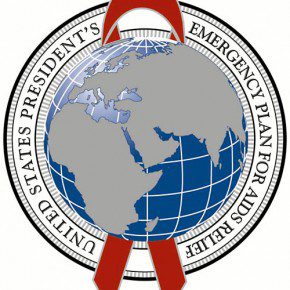Editors’ Note: This article is part of the Public Square 2014 Summer Series: Conversations on Religious Trends. We are holding this conversation in collaboration with the ONE Campaign. Read more about the ONE Campaign and their work fighting extreme poverty and AIDS at their website — and read other perspectives from the Evangelical community here. I’m grateful for the perspective of Peter Wehner below:
*
“Seldom has history offered a greater opportunity to do so much for so many,” President Bush said in his State of the Union address on January 28, 2003. “Tonight I propose the Emergency Plan for AIDS Relief – a work of mercy beyond all current international efforts to help the people of Africa.”
Seldom has a president spoken truer words.
 In 2003, I was serving in the White House as deputy assistant to the president when George W. Bush announced his plan. The effort began a year earlier, after President Bush concluded that international efforts (in the form of the new Global Fund to fight AIDS and other diseases) were not sufficiently robust. In the president’s words, “it was time for America to launch a global AIDS initiative of our own.” He directed a White House team, led by Joshua Bolten, to make recommendations. The president kept pushing to think bigger, to do more. He got his way. The President’s Emergency Plan for AIDS Relief, or PEPFAR, was the largest program in history to fight a single disease.
In 2003, I was serving in the White House as deputy assistant to the president when George W. Bush announced his plan. The effort began a year earlier, after President Bush concluded that international efforts (in the form of the new Global Fund to fight AIDS and other diseases) were not sufficiently robust. In the president’s words, “it was time for America to launch a global AIDS initiative of our own.” He directed a White House team, led by Joshua Bolten, to make recommendations. The president kept pushing to think bigger, to do more. He got his way. The President’s Emergency Plan for AIDS Relief, or PEPFAR, was the largest program in history to fight a single disease.
It included $15 billion over five years to promote prevention, treatment and compassionate care, mainly in Africa. Many were skeptical that large-scale AIDS treatment was even possible in the developing world. They were wrong. A Stanford study found that PEPFAR saved more than a million lives in just its first three years. (By the time President Bush left office in January 2009, PEPFAR had supported treatment for 2.1 million people and care for more than 10 million people. It helped protect mothers and babies during more than 16 million pregnancies.)
The global AIDS initiative qualifies as one of the great moral stories, one of the great humanitarian acts, of the last half-century. And Christians, individually and institutionally, were there to assist; to staff clinics and spread prevention messages, to heal shattered lives and bestow grace and compassion on the sick, the weak and the dying.
This was a dramatic contrast to the response by some prominent Christian figures in the 1980s, when AIDS was first reported in America. “AIDS is not just God’s punishment for homosexuals,” some evangelical leaders thundered, “it is God’s punishment for the society that tolerates homosexuals.”
This was not only bad theology. The words, intentionally or not, were harsh and merciless–and a watching world immediately and instinctively knew it.
The world has turned many times since then, and many Christians, to their (everlasting) credit, have reset their moral compass. They came to view the AIDS crisis through a much different, and far more humane, prism. In thinking about AIDS, they came to understand what was required of them: to do justice and to love mercy, to lift up those who are bowed down, and to see the preciousness and significance of all who are made in the Divine image.
There is a great deal more to do, on the AIDS front and so many others. But in working for the good of this earthly city, in providing succor and encouragement to its most vulnerable residents, including those afflicted with AIDS, evangelical Christians have shown themselves to be dispensers of grace. In a world of broken lives and broken hearts, that counts for quite a lot.
 Peter Wehner is a Senior Fellow at the Ethics and Public Policy Center. He writes widely on political, cultural, religious, and national-security issues and is coauthor with Michael Gerson of City of Man and with Arthur Brooks of Wealth and Justice.
Peter Wehner is a Senior Fellow at the Ethics and Public Policy Center. He writes widely on political, cultural, religious, and national-security issues and is coauthor with Michael Gerson of City of Man and with Arthur Brooks of Wealth and Justice.









